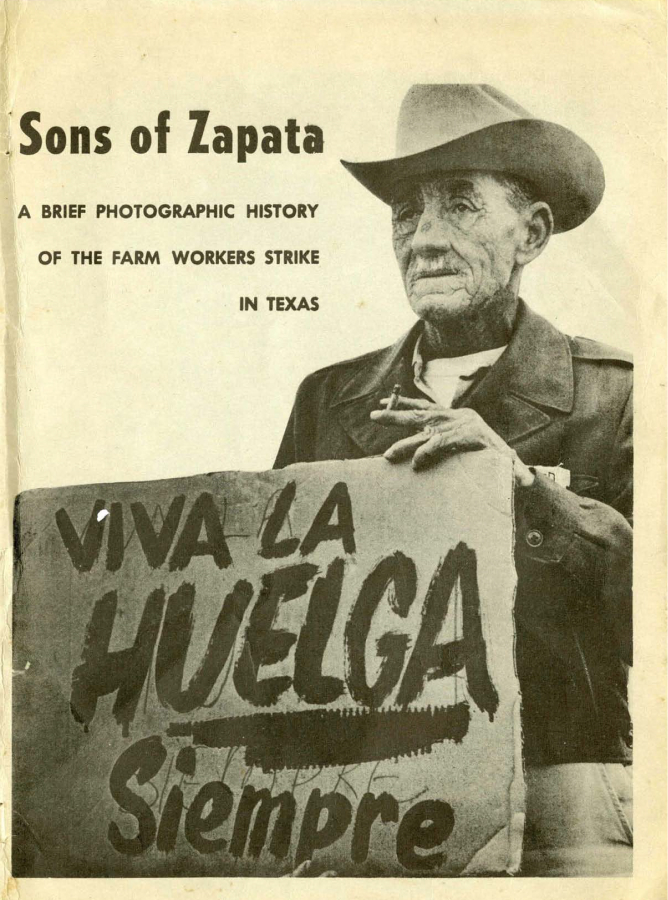Juárez-Zapata-Chávez
Juárez-Zapata-Chávez
Men standing in front fence painted with the names “Juarez, Zapata, Chavez,” Delano, 1967. Photo by Emmon Clarke.
President Benito Juárez and revolutionary leader Emiliano Zapata are among the best-known and revered historical figures by Mexicans and Mexican Americans. The connection of Juárez and Zapata to land reform makes the inclusion of César Chávez more meaningful to farmworkers in California and the rest of the country.
Emiliano Zapata was a leader of a peasant revolutionary army in Mexico during the Mexican Revolution of 1910-1917. His Plan de Ayala sought substantial land reform and redistribution of lands to the peasants. Although Zapata was killed in 1919, his ideas of land redistribution remained and were put in place by President Lázaro Cárdenas. Between 1936 and 1938, Cárdenas redistributed almost 18 million hectares to peasant ejidos.
Man holding a Thunderbird flag in front of a wall painted with the names “Juarez, Zapata, Chavez,” ca. 1966. Photo by John Kouns.

Cover of “Sons of Zapata” issue of El Malcriado, 1967
One example of revolutionary influence is the name of this special edition issue of the farmworkers’ newspaper El Malcriado titled “Sons of Zapata.” It detailed the conditions of life and work in Texas, as well as the Union’s involvement in 1966 to 1967. The phrase “sons of Zapata” was also used by Epifanio Camacho as a rallying cry during the September 16, 1965 meeting in which the NFWA decided to join the striking Filipino workers.
Tom & Ethel Bradley Center
California State University, Northridge
18111 Nordhoff Street, Northridge, CA 91330
Phone: (818) 677-1200 / Contact Us

